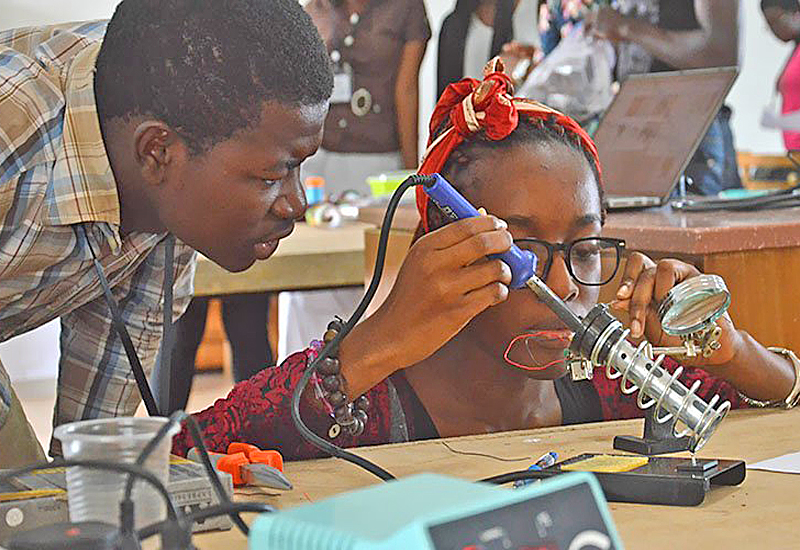Mr Abdourahamane Dialo, the UNESCO Representative in Ghana, has called for enhanced efforts by stakeholders to reduce the gender gap against females in Science, Technology, Engineering and Mathematics (STEM).
He noted that women and girls remained highly underrepresented despite their rising enrolment in STEM courses.
Mr Dialo said they faced levels of discriminations in leadership opportunities, rights, unfair wages, employment, contracts, and research funding.
He cited the 2021 UNESCO Science Report, which showed that women scientists were awarded less research than men, were less likely to be promoted in the private sector and had less presence in corporate leadership.
The report further noted that women lacked equal opportunities in the workplace due to stereotyping, and that those barriers were driving most of them out of the research profession and STEM.
He said although UNESCO applauded the Ministry of Education’s initiative to enhance access to and provide support for more STEM learning at the pre-tertiary level, much more was required to achieve the expected gender parity and inclusion for all females.
Mr Dialo was speaking at an event in Accra to mark the 7th International Day of Women and Girls in Science, which was on the theme: “Equity, Diversity and Inclusion: Water Unites Us.”
The annual celebration, aimed at recognizing the role of women and girls in Science, not only as beneficiaries, but also as agents of change to accelerate progress towards the achievement of the Sustainable Development Goal (SDG- Six) on Clean Water and Sanitation.
He said UNESCO placed much premium on gender equality, hence its recognition of women in Science, and called for the principle of equality to be put into action so that Science worked for women, “because it works against them all too often.”
“Studies show that women account for only 22 per cent of professionals working in Artificial Intelligence and 28 per cent of engineering graduates globally,” but then women in Science were real agents of change as they were already helping countries to accelerate the achievement of all SDGs.
He called for more investment into women-led innovations, research fund support, and provision of professional assistance through scholarships, mentoring programmes, and gender-friendly policies to enhance their capacities.
Mr Dialo stressed that having more women in Science was a key driver for the achievement of Africa’s commitment to power sustainable development through Science Technology and Innovation (STI), as captured in the African Union’s Science, Technology, and Innovation Strategy for Africa 2024, which was also echoed in Ghana’s National Science, Technology, and Innovation Policy (2017-22).
“It is expected that in due time, the Ministry, together with the Ghana Education Service (GES) will share with UNESCO, UN, and other stakeholders, the smart action plans and strategies to further boost the participation and visibility of Ghanaian girls in STEM,” he said.
Mr Dialo spoke about gender equality being a top priority for UNESCO, hence the institution of variety of projects in collaboration with local stakeholders.
The projects included an award scheme for women in science, and a prize for women and girls’ education to enhance their inclusion.
Additionally, through the UNSECO Global Observatory of Science Policy Information (GOSPI), a database had been created for all Science Technology and Innovation (STI) related policies that affected gender equality, and women’s empowerment both positively and negatively, he said.
Dr Yvonne S. A. Loh, a Senior Lecturer at the Universality of Ghana, Legon, said rising demand, poor management, and failure to conserve water resources compounded by climate change represented key challenges, urgently requiring new sustainable and holistic approach to support aligning strategies on water.
She spoke about the importance of water for the survival of life on earth and advised the public against the current mass environmental and water pollution, calling for strong political will and change agents to enforce existing policies and regulations.
“We need more women developing artificial intelligence that serves everyone and works for gender equality. We also need to reverse trends that keep young women scientists from pursuing careers that help us address the climate and environmental crises,” she said.
Dr Loh, who is also a Hydrologist, advocated for the inclusion of more females in the development of basic infrastructure because they used them more than men.
The occasion was marked with exhibitions on water conservation by female Science students from various Junior and Senior High Schools.
Ashantibiz




